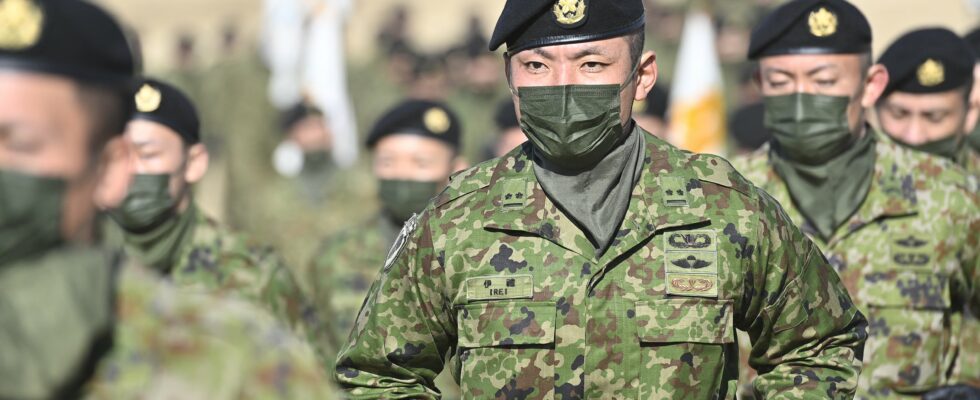An admiral dismissed, a vice-minister censured, 218 soldiers sanctioned… Japan is cleaning up its Self-Defense Forces (SDF), undermined by corruption and embezzlement of public funds. “I am deeply aware of my responsibility in what appears to be a betrayal of the public’s trust,” apologized Defense Minister Minoru Kihara on July 12. Taking office in September 2023, this security specialist has ruled out resigning. He has only promised to give up one month’s salary…
The shock is no less severe, especially within the navy, the army most “implicated” by these scandals. Its chief, Admiral Ryo Sakai, was “retired” on July 19 after admitting “a lack of respect for the rules” and “a deficit in governance”. His successor, Vice Admiral Akira Saito, will have to restore order to a fleet gangrened by laxity: 62 submariners, including senior officers, received compensation for diving exercises never carried out. Cost to the ministry: 43 million yen (250,000 euros). Others are said to have benefited from the largesse of the industrialist Kawasaki Heavy Industries, a group responsible for maintaining submarines, targeted by an investigation by the Osaka Tax Bureau for fictitious transactions amounting to 5.8 million euros, carried out between 2016 and 2022.
Lax management of classified data
But the most serious comes above all from the carelessness of the general staff in managing top secret information. Soldiers from the three armies (land, air and sea) are concerned, but, here again, the navy takes the cake. According to the investigations of the Ministry of Defense, unauthorized personnel had access to classified data accessible only in the Combat Information Centers of 38 military vessels. Not very serious for a country that adopted a law on the protection of sensitive information in 2013 and aspires to join the Five Eyes, the intelligence alliance bringing together the United States, the United Kingdom, Australia, New Zealand and Canada.
For the SDF, these scandals come at a particularly bad time as it is struggling to attract new recruits. Barely half of its recruitment targets were met last year. This is a bad omen, given that the 2024 edition of the White Paper on Defense calls for a “fundamental strengthening” of Japan’s military capabilities due to “the most degraded and complex security environment since the end of World War II.” For several years, Japan has been particularly concerned about the rise of China, Russian activism in its immediate neighborhood, and North Korea’s nuclear development programs. In this context, Prime Minister Fumio Kishida, who announced on August 14 that he would not run for a new term due to his unpopularity, launched a vast program at the end of 2022 to increase the military budget from 1% to 2% of GDP by 2027.
“If the problems within the ADF continue, the population will not accept the government’s proposal to sharply increase defense spending, not to mention tax increases to finance it,” the center-left daily noted in its July 13 editorial. Asahi. And the newspaper calls for “a deep reform to restore discipline”. That’s the least we can do.
